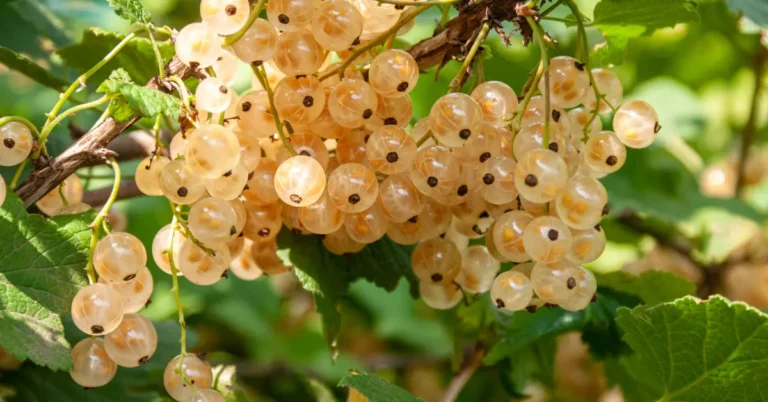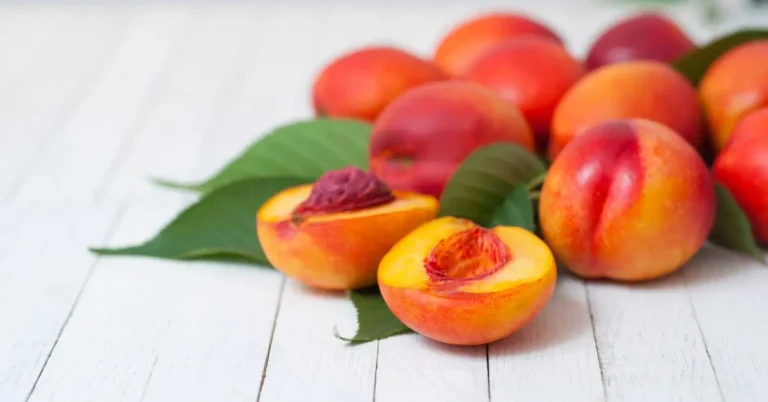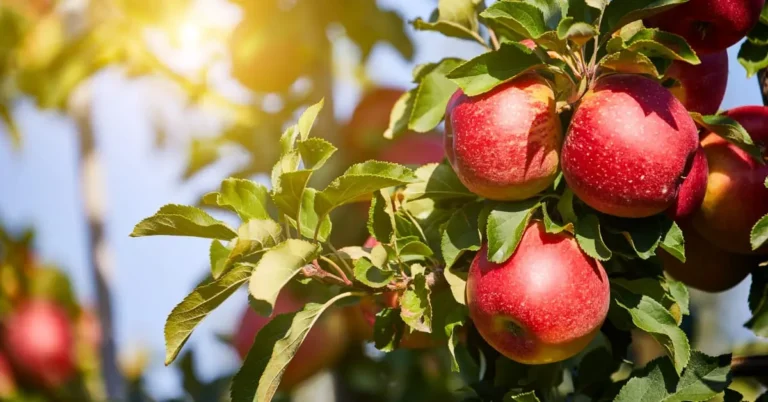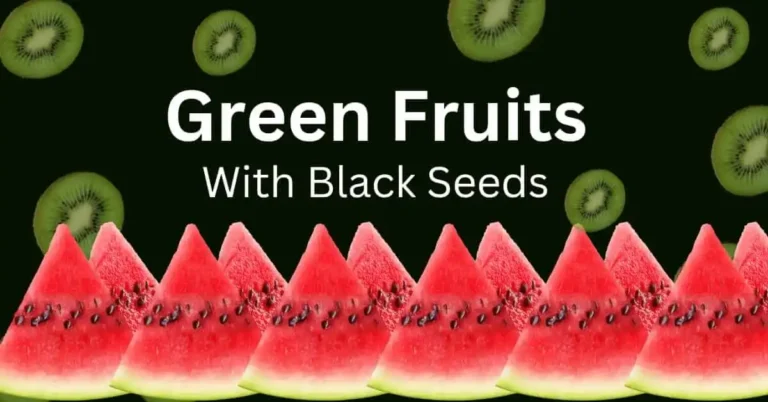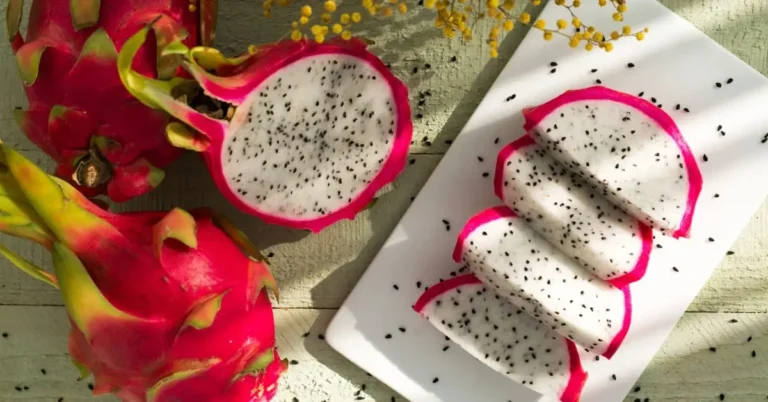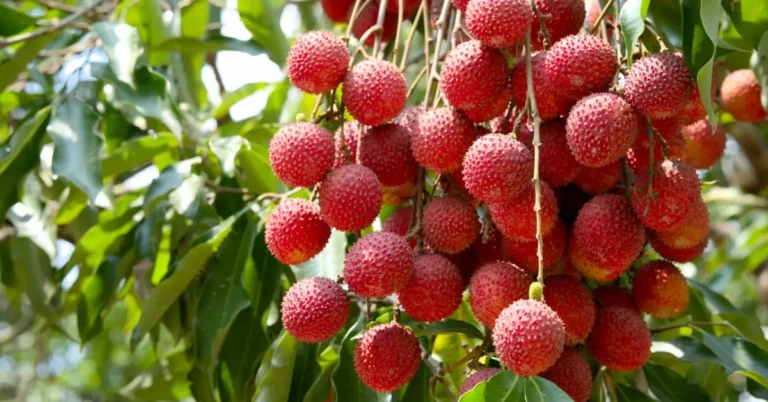Fruits That Start With M
Fruits have been a part of human life since the beginning of time. They add vibrant colors and flavors to our meals, providing essential nutrients that are crucial for our well-being. With over thousands of different fruits, it’s no surprise that some are less familiar to us than others. In this article, we will explore the world of fruits that start with M and uncover the unique benefits and characteristics of each one.
20 Fruits That Start With M
List of fruits that start with M.
1. Mango
Let’s start with one of the most beloved tropical fruits, the mango. Originating from South Asia, this juicy fruit is now popular all over the world. It has a sweet, slightly tangy flavor and a soft, fibrous texture. Mangoes are rich in vitamin C, vitamin A, and potassium. They also contain antioxidants that can help prevent diseases and promote healthy skin.
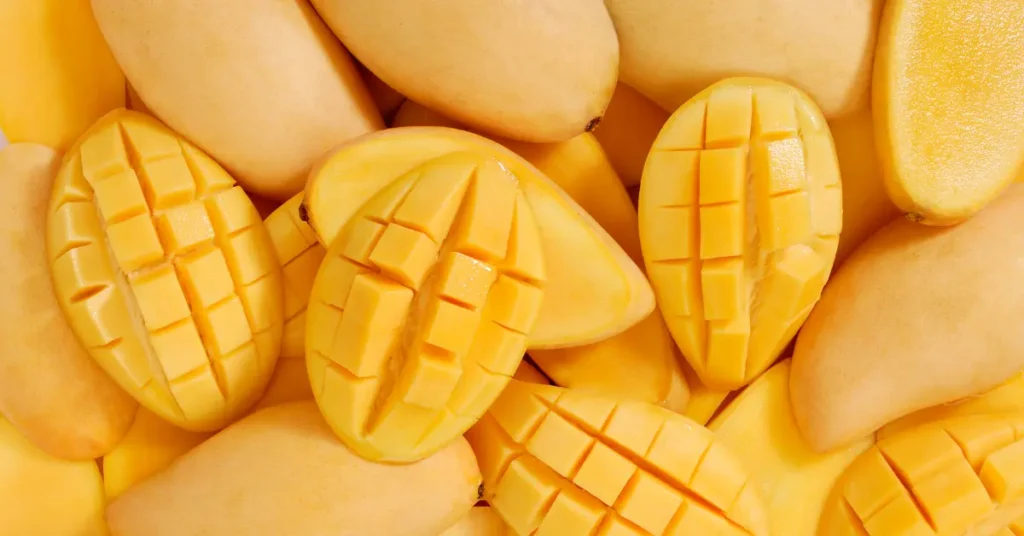
2. Mandarin Orange
Mandarin oranges, also known as tangerines, are small, juicy citrus fruits with a bright orange color. They are packed with vitamins and minerals such as vitamin C, folate, and potassium. These fruits are low in calories, making them a guilt-free snack that can boost your immune system and reduce the risk of chronic diseases.
3. Melon
Melons are large, round fruits with a thick rind and sweet, juicy flesh. There are different types of melons, such as watermelon, honeydew, and cantaloupe, but they all share similar health benefits. They are a rich source of vitamin C, fiber, and antioxidants. Melons also contain high levels of water, which can help you stay hydrated and aid in weight management.
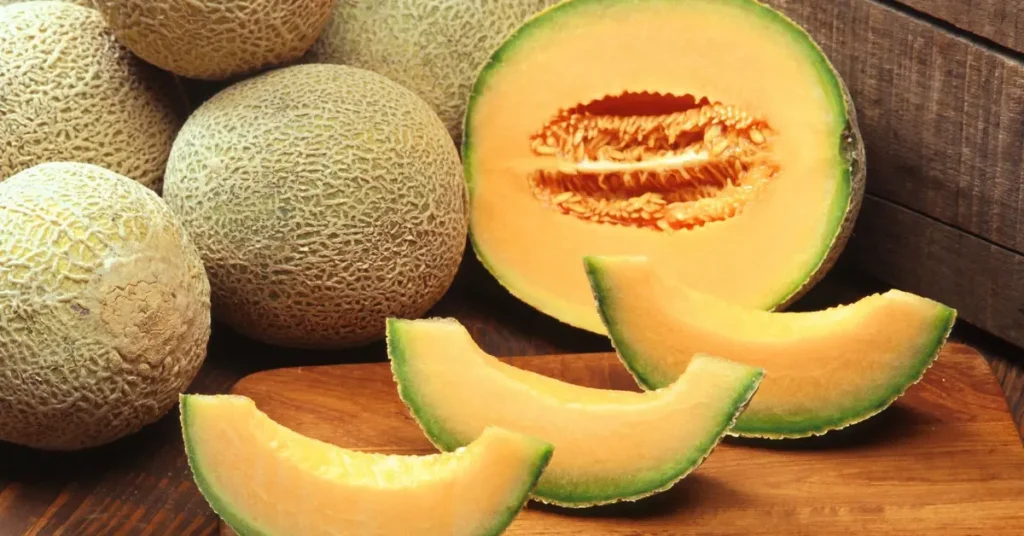
4. Mulberry
Mulberries are small, sweet fruits that come in various colors, including black, red, and white. They are a good source of iron, vitamin C, and dietary fiber. These fruits are known for their anti-inflammatory and antibacterial properties. They can also help improve blood circulation, reduce cholesterol levels, and promote healthy digestion.
5. Maracuja
Also known as passion fruit, maracuja has a unique tart and tangy flavor. The fruit is round and has a purple or yellowish skin. Inside, it contains a lot of juicy seeds that are consumed with the pulp. Maracuja is rich in vitamins A and C, and its potent antioxidants can boost the immune system and prevent chronic diseases like cancer and heart disease.
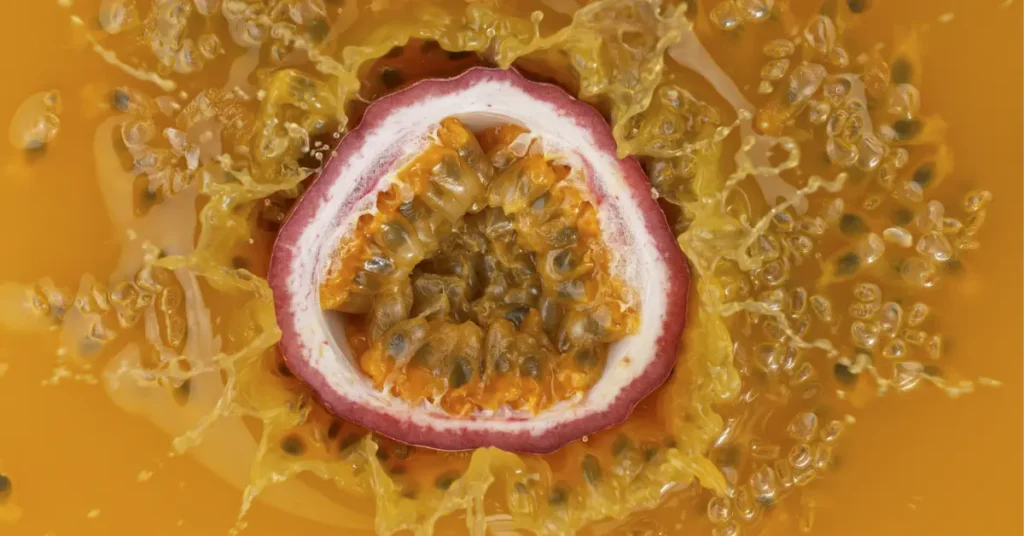
6. Medlar
Medlars are small, apple-shaped fruits with a sweet and tangy flavor. They are also known as loquats or Japanese plums. These fruits are a good source of vitamins and minerals such as vitamin A, potassium, and manganese. The high fiber content in medlars can promote regular bowel movements and improve digestive health.
7. Miracle Fruit
Native to West Africa, the miracle fruit is a small, berry-like fruit that has a unique quality – it can alter your taste perception the berit coats your tongue, and everything sour tastes sweet for about half an hour. Miracle fruit contains antioxidants that can help fight inflammation and reduce the risk of diseases like diabetes and heart disease.
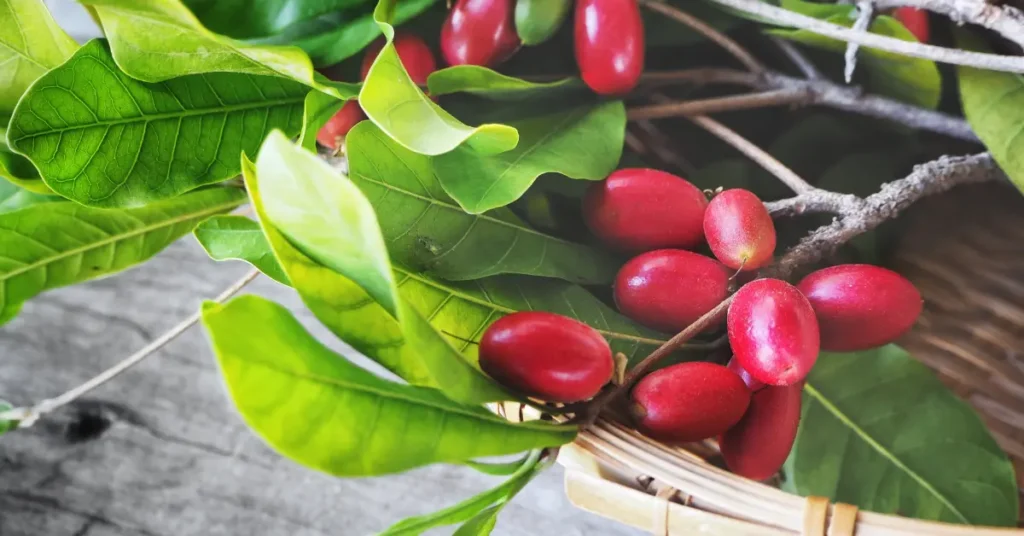
8. Muskmelon
Muskmelons are a type of cantaloupe with a similar appearance and taste. They have a sweet, fruity flavor and are high in vitamins A and C. Muskmelons also contain a compound called lycopene, which gives them their orange color and has been linked to reducing the risk of certain cancers.
9. Monkey Fruit
Monkey fruit, also known as rambutan, is a small, reddish fruit with spiky hair-like protrusions. Its white, juicy flesh has a sweet, slightly acidic taste. Monkey fruit is a good source of vitamin C and other nutrients such as iron, magnesium, and fiber. The high antioxidant content in this fruit can boost the immune system and protect against cellular damage.
10. Mulberry Fig
Mulberry figs, also known as drupe figs, are a type of fig that is grown in China and Korea. They are small, oblong fruits with a sweet and slightly tart flavor. These figs are rich in vitamin C, potassium, and fiber. They also contain calcium, which is essential for bone health and can help prevent osteoporosis.
11. Miracle Berry
Miracle berries, also known as slum dulcificum, are small, red fruits found in West Africa. They are known for their ability to make sour foods taste sweet due to the protein called miraculin in their pulp. These berries are rich in antioxidants and contain compounds that can help control blood sugar levels and promote heart health.
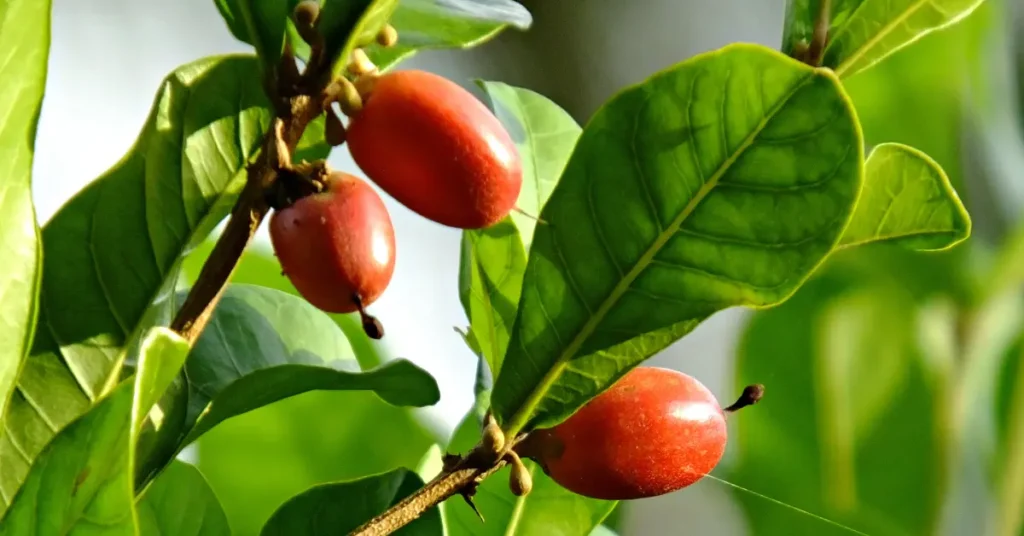
12. Mamoncillo
Mamoncillo, also known as Spanish lime, is a small, round fruit with a thin peel and a sour, tangy flavor. It is a good source of vitamin C and provides a good amount of dietary fiber. Mamoncillo is known to possess anti-inflammatory properties and can help promote healthy digestion.
13. Mammee Apple
Mammee apple, also known as mammee sapote, is a lait that resembles a cantaloupe in appearance. Its thick peel is yellow or brown, and the flesh inside is sweet and juicy. Mammee apples are rich in fiber, vitamins, and minerals such as vitamin C, potassium, and calcium. They are also known for their anti-inflammatory and antibacterial properties.
14. Marionberry
Marionberries are a type of blackberry that is native to Oregon, USA. They are fruits with a sweet, tart flavor and are primarily used in desserts, jams, and pies. Marionberries are packed with antioxidants, and their high anthocyanin content can help promote brain health and reduce the risk of certain cancers.
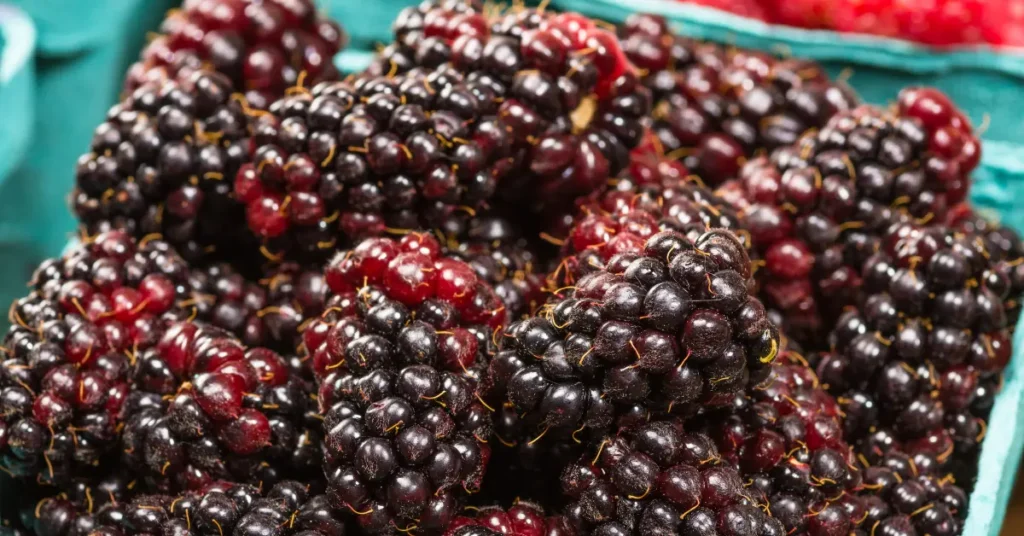
15. Mamon
Mamon, also known as soursop, is a large, tropical fruit with spiky, green skin and soft, white, creamy flesh. It has a sweet and tangy flavor and is known for its various medicinal properties. Mamon is rich in vitamin C and contains compounds that help boost the immune system and fight inflammation.
16. Mountain Apple
Mountain Apple, also known as Syzygium malaccense, is a tropical fruit native to Southeast Asia. It boasts a crisp texture and a sweet, mildly tart flavor. These fruits are rich in fiber and contain vitamins and minerals such as vitamins and calcium. They also have anti-inflammatory properties and can aid in weight management.
17. Maypop
Maypop, also known as passionfruit, is a small, oval fruit with smooth, purple skin. Maypop fruit is filled with seeds embedded in a juicy pulp, making it both flavorful and nutritious. Maypop is also valued for its medicinal properties, believed to aid in relaxation and sleep.
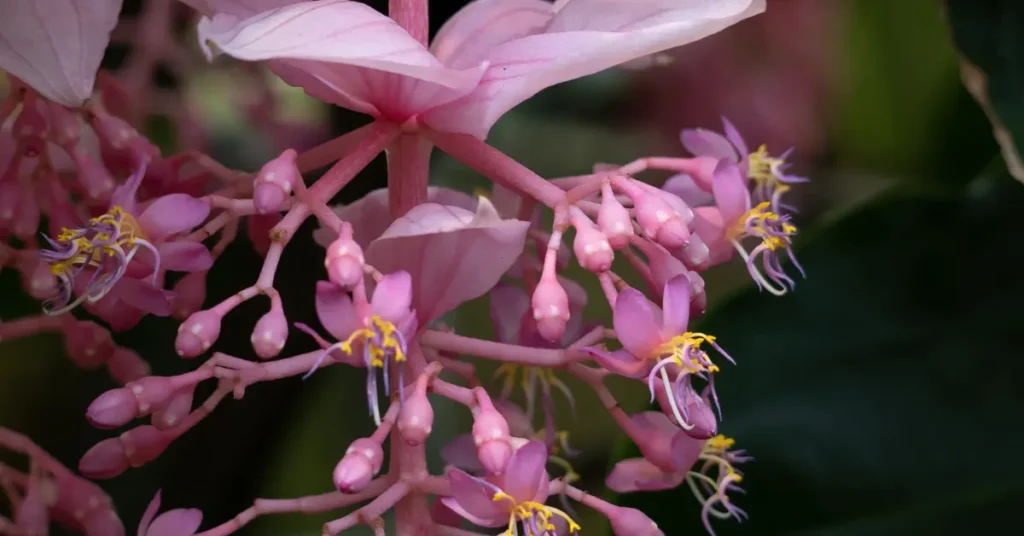
18. Mountian Dew Berry
The mountain dewberry, also known as dark blackberries, is a type of blackberry found in the mountains of North America. They are smaller than regular blackberries and have a deep purple color when ripe. These berries are packed with vitamins and minerals and contain compounds that can help protect against diseases like cancer.
19. Medinilla
Medinilla is a small, ornamental fruit with bright pink petals and a cluster of small, edible fruits. The fruit has a sweet, slightly sour flavor and is often used in jams and sauces. It is rich in antioxidants and contains compounds that can help regulate blood sugar levels famous for heart health.
20. Monstera Deliciosa Fruit
Monstera Deliciosa, also known as the Swiss cheese plant, is a tropical fruit that looks like a giant green ear of corn. They are popular for their creamy, sweet, and slightly tart taste. Monstera Delicious From Faresults also contains antioxidants that can help boost immunity and reduce the risk of certain diseases.
Conclusion
There are numerous fruits that start with M, each possessing unique flavors, colors, and health benefits. From familiar favorites like mango and melon to exotic fruits like maracuja and miracle berry, there is a wide variety to explore and enjoy. So, next time you’re at the grocery store, be sure to look out for these nutritious and delicious fruits that start with M.

